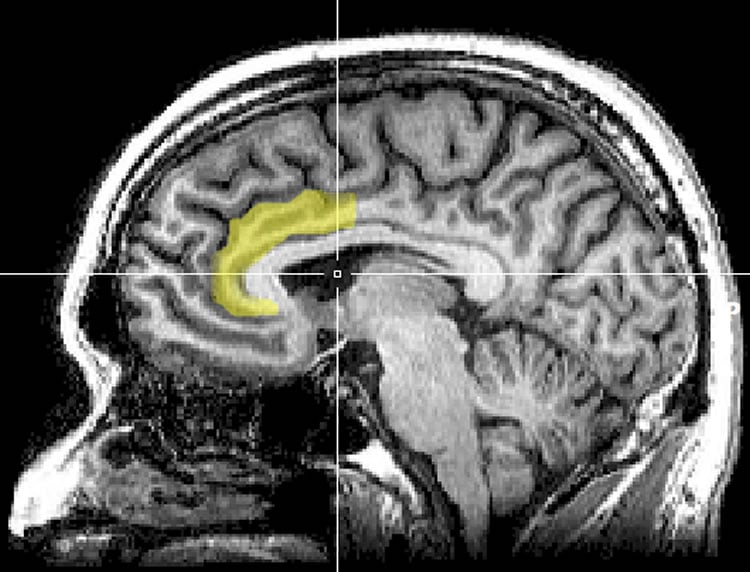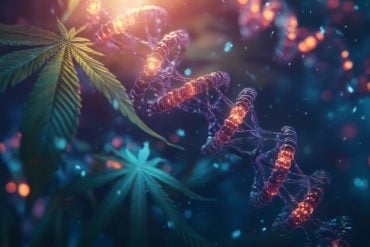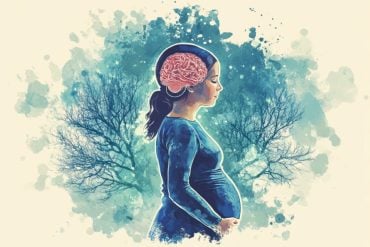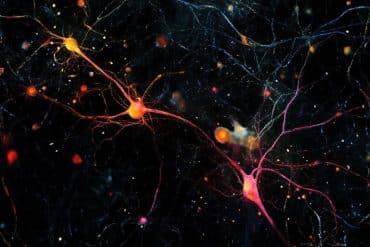The way our brain responds to others’ good fortune is linked to how empathetic people report themselves to be, according to new UCL-led research.
The study, published today in the Journal of Neuroscience and funded by the Medical Research Council, shows that a part of the brain called the anterior cingulate cortex (ACC) seems particularly attuned to other people’s good news, but how it responds varies substantially depending on our levels of empathy.
For people who rated themselves as highly empathetic, the ACC responded only when another person had good news coming, but for people who gave themselves lower empathy scores, the ACC also responded when bad news was predicted for themselves.
This new insight could prove important in understanding the role of the ACC in disorders of social behaviour and empathy, including psychopathy and autism. Further studies could focus on how the brain responds to our own success compared to others’ in people with these disorders.
Researchers scanned the brains of 30 male volunteers aged 19-32 using functional magnetic resonance imaging while they saw symbols that predicted how likely either they or another person was to win money.
Participants also completed a questionnaire that assessed their empathy level in the week before they had the scan.
“We looked at how this brain response varied in people with different levels of empathy. We wanted to see whether the brains of people who have high levels of empathy are particularly responsive to other people’s good fortune” said lead author Patricia Lockwood, UCL Psychology & Language Sciences.
The study found that the ACC region of the brain activated in all the volunteers when someone else was very likely to win money. However, there were substantial differences in how ‘specialised’ this ACC response was, which were linked to how empathetic participants said they were.
Participants whose ACC activation was the most specialised for other people showed an ACC response only when the other person was very likely to win money. These volunteers had rated themselves as high in empathy.
However, participants whose ACC activation was less specialised for other people also showed an ACC response when they themselves were very unlikely to win money. These participants had given themselves much lower empathy scores.

“We were excited to find that differences in how empathetic people were changed how ‘specialised’ the ACC was when responding to other people’s rewards,” said Professor Essi Viding, the senior author of the study.
“Future research is needed to determine whether this degree of specialization also relates to other traits besides empathy, such as how competitive people are.”
Further research is also needed to examine how real life social interactions can be influenced by how specialised this area of the brain is, and whether these results can help to explain why some people only feel happy for others’ success when they feel successful themselves.
Funding: The research was funded by the MRC.
Source: Margaret-Anne Orgill – UCL
Image Source: The image is credited to Geoff B Hall and is in the public domain
Original Research: Full open access research for “Encoding of Vicarious Reward Prediction in Anterior Cingulate Cortex and Relationship with Trait Empathy” by Patricia. L. Lockwood, Matthew A.J. Apps, Jonathan P. Roiser, and Essi Viding in Journal of Neuroscience. Published online October 7 2015 doi:10.1523/JNEUROSCI.1703-15.2015
Abstract
Encoding of Vicarious Reward Prediction in Anterior Cingulate Cortex and Relationship with Trait Empathy
Empathy—the capacity to understand and resonate with the experiences of others—can depend on the ability to predict when others are likely to receive rewards. However, although a plethora of research has examined the neural basis of predictions about the likelihood of receiving rewards ourselves, very little is known about the mechanisms that underpin variability in vicarious reward prediction. Human neuroimaging and nonhuman primate studies suggest that a subregion of the anterior cingulate cortex in the gyrus (ACCg) is engaged when others receive rewards. Does the ACCg show specialization for processing predictions about others’ rewards and not one’s own and does this specialization vary with empathic abilities? We examined hemodynamic responses in the human brain time-locked to cues that were predictive of a high or low probability of a reward either for the subject themselves or another person. We found that the ACCg robustly signaled the likelihood of a reward being delivered to another. In addition, ACCg response significantly covaried with trait emotion contagion, a necessary foundation for empathizing with other individuals. In individuals high in emotion contagion, the ACCg was specialized for processing others’ rewards exclusively, but for those low in emotion contagion, this region also responded to information about the subject’s own rewards. Our results are the first to show that the ACCg signals probabilistic predictions about rewards for other people and that the substantial individual variability in the degree to which the ACCg is specialized for processing others’ rewards is related to trait empathy.
SIGNIFICANCE STATEMENT Successfully cooperating, competing, or empathizing with others can depend on our ability to predict when others are going to get something rewarding. Although many studies have examined how the brain processes rewards we will get ourselves, very little is known about vicarious reward processing. Here, we show that a subregion of the anterior cingulate cortex in the gyrus (ACCg) shows a degree of specialization for processing others’ versus one’s own rewards. However, the degree to which the ACCg is specialized varies with people’s ability to empathize with others. This new insight into how vicarious rewards are processed in the brain and vary with empathy may be key for understanding disorders of social behavior, including psychopathy and autism.
“Encoding of Vicarious Reward Prediction in Anterior Cingulate Cortex and Relationship with Trait Empathy” by Patricia. L. Lockwood, Matthew A.J. Apps, Jonathan P. Roiser, and Essi Viding in Journal of Neuroscience. Published online October 7 2015 doi:10.1523/JNEUROSCI.1703-15.2015






